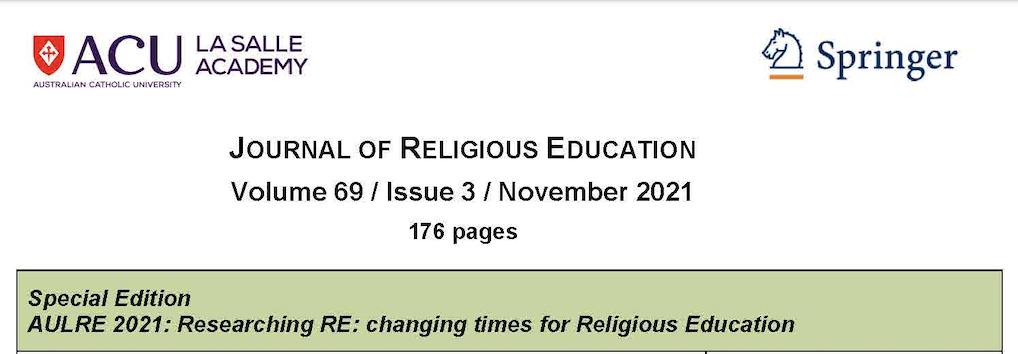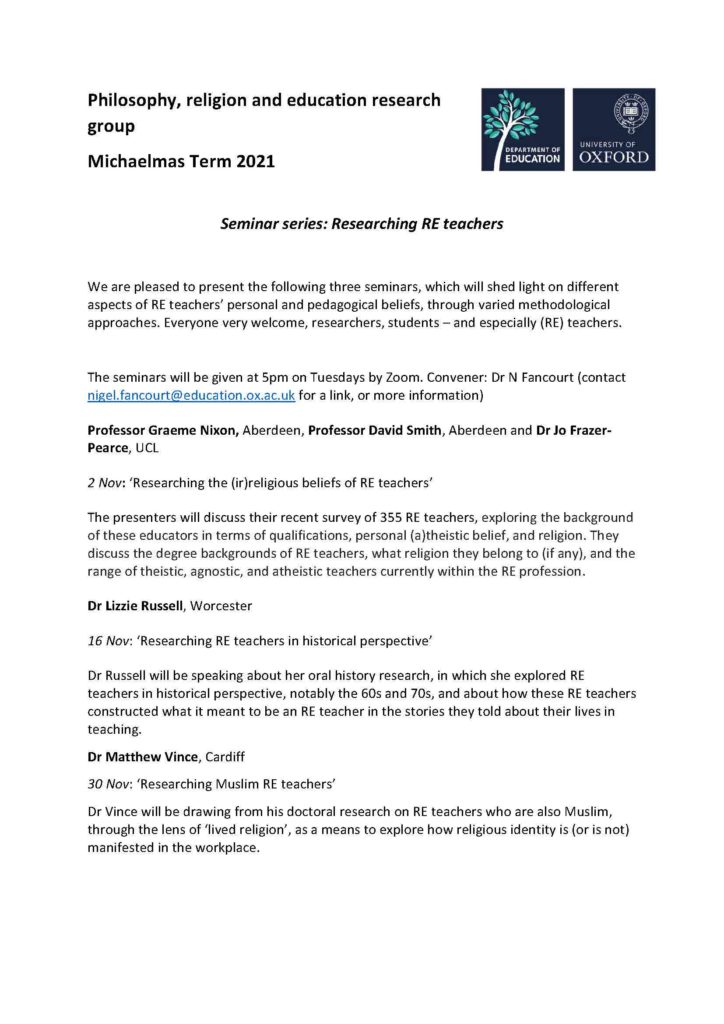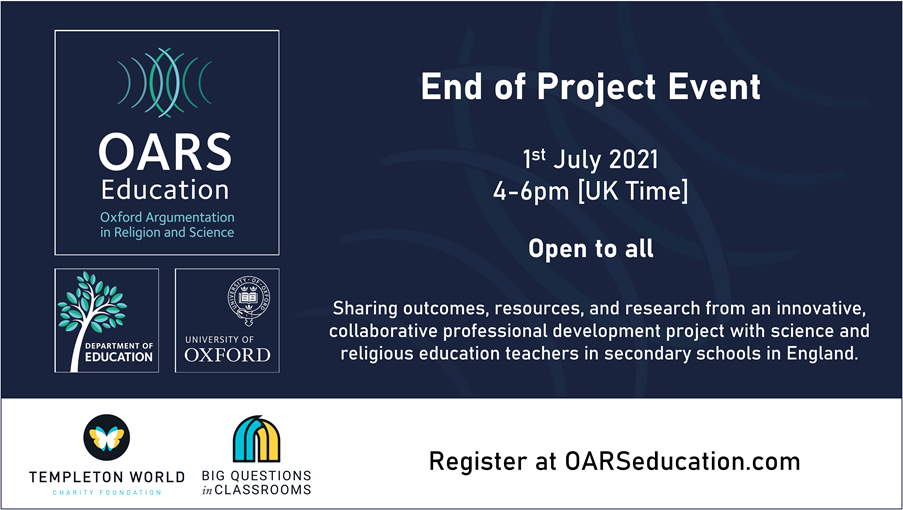We are delighted to share a series of seminars hosted by AULRE:
1. Beginning teachers on the purpose of RE and experiences of science religion encounters in the RE classroom. Mary Woolley and Bob Bowie (Canterbury Christ Church University)
8th December 2021 5.30-7.00pm
Hosted on MS Teams at Canterbury Christ Church University
This seminar reports new, as yet unpublished findings that show how current beginning teachers debate and express the purposes of RE. It will explore practical and epistemological questions raised by this data relating them to current debates about disciplinarily and the nature of the subject. The Science Religion Encounters project is a large scale TWCF funded research project to understand the experience and thinking of beginning teachers and ‘science religion encounters’, led by Canterbury Christ Church University working with 5 other HEIs. It is a multi-methods study of beginning teachers, with data from focus groups at 6 universities and a national survey of beginning teachers trained at teacher education institutions/partnerships from across England. Professor Bob Bowie and Dr Mary Woolley present these research findings at this seminar.
To book a place and get the link to join, please email gill.harrison@canterbury.ac.uk
2. Some pupils should know better, because there is better knowledge than opinion: Religious Education, knowledge and big questions. Jo Fraser-Pearce and Alexis Stones, UCL Institute of Education
19th January 2022, 5:30 to 7pm.
Hosted on MS Teams at Canterbury Christ Church University
We present interim findings of our TWCF funded research project on Religious Education (RE), knowledge and big questions and, in our analysis, draw on Miranda Fricker’s concept of epistemic injustice – that is, the notion that a person can be wronged “specifically in their capacity as a knower” (Fricker 2007, 1). In interviews with Key Stage 3 pupils (aged 12–14) we found that many students’ capacity to engage critically with different types of knowledge is hindered by the prioritisation of respect for opinion. A key indicator of epistemic disadvantage seems to exist when opinion is considered something not to be questioned, whereas some pupils value and can employ criticality when considering knowledge claims (including opinions). This disparity exacerbates epistemic injustice – broadening a gap between the epistemic haves and have-nots. We focus largely on the emergent theme of (respect for) opinions and argue that the prioritisation of respect in RE is (for some pupils) a barrier to knowledge. We contextualise our findings with public discourses about knowledge and school education (for example, Young 2015) and explore why these matter for individuals, society and RE.
Refs:
Fricker, M. (2007). Epistemic injustice: Power and the ethics of knowing. Oxford University Press.
Young, M. (2015). Powerful knowledge as a curriculum principle. In M. Young & D. Lambert (Eds.), Knowledge and the future school: Curriculum and social justice. Bloomsbury.
To book a place and get the link to join, please email gill.harrison@canterbury.ac.uk
3. Who are the new RE teachers, and what do they have to teach us as ITE providers? Mark Plater (Bishop Grosseteste University)
4th February 2021, 5:30 to 7pm.
(Hosted on MS Teams at Canterbury Christ Church University)
Mark Plater, coordinator and teacher on the Secondary PGCE Religious Education programme at Bishop Grosseteste University leads this seminar exploring the implications of findings from a recent survey of early career Religious Education teachers, particularly those entering the profession during the period 2020-21. In this survey, trainees provide details of why they entered the profession, what previous experience they bring with them, and what they have appreciated or found lacking in their present training courses. In our discussion we will particularly consider what findings might be unexpected, and what messages this provides for those of us offering ITE RE courses in schools and universities.
To book a place and get the link to join, please email gill.harrison@canterbury.ac.uk



